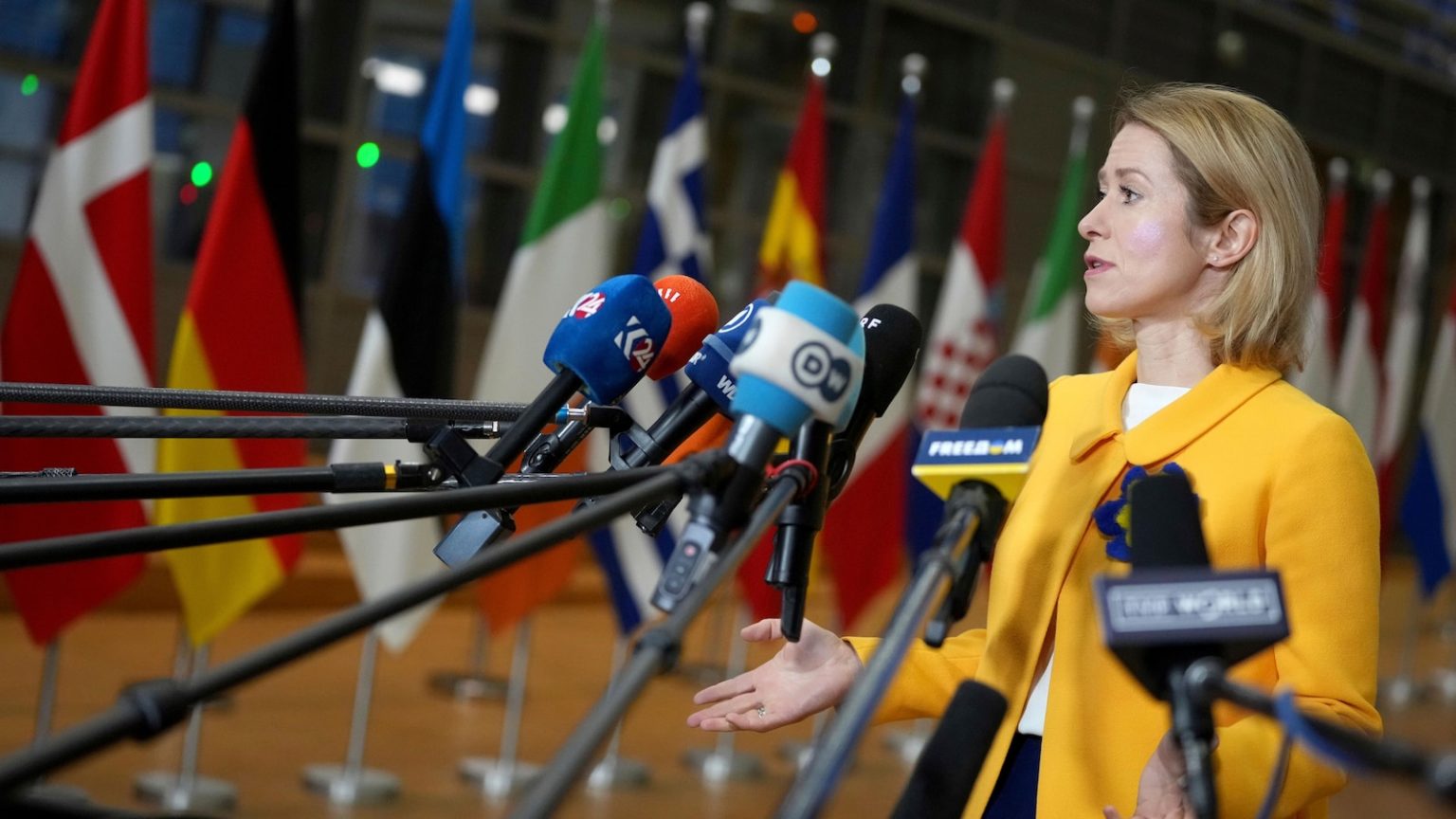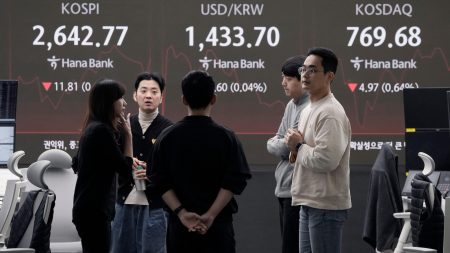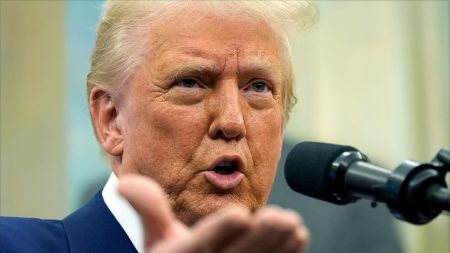The European Union Eases Sanctions on Syria: A Step Toward Economic Recovery
A New Chapter for Syria: EU Lifts Some Sanctions
In a significant move to support the war-torn nation of Syria, the European Union (EU) announced on Monday the easing of certain energy, transport, and banking sanctions. This decision marks a shift in the EU’s stance toward Syria, as it seeks to revitalize the country’s battered economy under its new leadership. The sanctions, which were first imposed in 2011, were a response to the violent crackdown by then-President Bashar Assad on protesters, which spiraled into a devastating civil war. However, with the fall of Assad in December and the rise of Hayat Tahrir al-Sham (HTS), a former rebel group now in control of Syria, the EU has decided to suspend some of these restrictive measures to encourage the new leaders to work toward peace and stability.
The EU’s decision to ease sanctions is not a complete lifting but rather a suspension of specific measures. This includes the removal of restrictions on Syria’s oil, gas, and electricity sectors, as well as the transport sector, particularly aviation. Additionally, the EU will allow funding and the provision of certain economic resources to five Syrian banks. Even restrictions on the export of luxury goods to Syria for personal use will be relaxed. These changes are part of the EU’s broader strategy to support what it hopes will be an inclusive political transition in Syria, leading to swift economic recovery, reconstruction, and stabilization.
Why Now? The EU’s Motivation Behind Easing Sanctions
The EU’s decision to ease sanctions on Syria is deeply tied to the political developments in the country. After Assad’s ousting, HTS, the main rebel group now in control, established an interim administration. This new government has pledged to form an inclusive administration by March, signaling a potential shift toward a more peaceful and representative leadership. The EU sees this as an opportunity to incentivize the new leaders to adhere to democratic principles and work toward a stable future.
By easing sanctions, the EU aims to breathe life into Syria’s struggling economy, which has been severely impacted by years of war, sanctions, and mismanagement. The suspension of energy and transport sanctions is particularly significant, as these sectors are critical for the country’s economic recovery. Moreover, the easing of banking restrictions could help restore some level of financial stability, allowing Syria to reconnect with the global economy. The EU’s move is also a way to encourage the new leadership to prioritize reconstruction and stabilization, which are essential for the well-being of the Syrian people.
However, the EU has made it clear that this is not a permanent or unconditional decision. The bloc will closely monitor developments in Syria to assess whether further sanctions can be lifted. At the same time, the EU has left the door open to reimpose sanctions if the new leaders fail to meet expectations or take steps that undermine peace and stability. This approach reflects the EU’s cautious optimism, balancing support for Syria’s recovery with the need to ensure accountability and progress.
The Rise of a New Leadership in Syria
The shift in the EU’s policy toward Syria comes amid significant changes in the country’s political landscape. In December, a lightning rebel offensive led to the toppling of Bashar Assad, who had ruled Syria with an iron fist for decades. The fall of Assad paved the way for Hayat Tahrir al-Sham (HTS), a former rebel group, to take control of the country. HTS has since established an interim administration, with the promise of forming a new government through an inclusive process by March.
In January, Ahmad al-Sharaa, a former leader of HTS, was named Syria’s interim president after a meeting of most of the country’s former rebel factions. The factions agreed to dissolve Syria’s existing constitution, national army, security service, and official political parties, signaling a break from the past. This move has been met with both hope and skepticism by the international community, which is eager to see whether the new leadership will deliver on its promises of inclusivity and reform.
International Pressure for an Inclusive Transition
The international community, including the EU, has made it clear that its support for Syria’s new leadership is contingent on the commitment to an inclusive political transition. Geir Pedersen, the United Nations special envoy for Syria, has emphasized the importance of forming a “new inclusive government” by March 1. Pedersen has suggested that the establishment of such a government could be a crucial factor in determining whether Western sanctions are lifted further.
The EU’s decision to ease sanctions is, therefore, not just an act of goodwill but also a strategic move to pressure Syria’s new leaders to adhere to democratic principles. The bloc and other international actors are keenly watching whether the new government will prioritize the needs and rights of all Syrians, including those who opposed the previous regime. The formation of an inclusive government will be a key indicator of whether Syria is on the path to lasting peace and stability.
The Road Ahead: Challenges and Opportunities
While the EU’s decision to ease sanctions offers a glimmer of hope for Syria’s economic recovery, the road ahead remains fraught with challenges. The new leadership faces the daunting task of rebuilding a country devastated by years of war, while also navigating the complex web of international relations. The EU’s conditional approach to sanctions relief underscores the delicate balance between supporting recovery and ensuring accountability.
Syria’s new leaders will need to demonstrate a commitment to inclusivity, transparency, and human rights if they are to gain the trust of the international community and unlock further economic support. The formation of a new government by March will be a crucial test of their willingness to embrace reform. At the same time, the EU and other international actors must remain vigilant, ensuring that their support is used effectively to benefit the Syrian people and not exploited by those in power.
Conclusion: A Cautious Step Toward Renewal
The EU’s decision to ease sanctions on Syria marks a cautious yet significant step toward the country’s renewal. After years of devastating conflict and economic isolation, there is now a glimmer of hope for Syria’s recovery. The suspension of energy, transport, and banking restrictions, as well as the easing of luxury goods exports, could help breathe life into Syria’s economy and pave the way for reconstruction and stabilization.
However, this move is not without risks. The EU’s conditional approach reflects the international community’s skepticism about whether Syria’s new leaders will truly commit to an inclusive political transition. The formation of a new government by March will be a critical test of their intentions. As the EU and other global actors watch closely, the next few months will determine whether Syria can embark on a path to lasting peace and prosperity. For now, the EU’s decision is a tentative endorsement of Syria’s new leadership, offering both an opportunity and a warning: the world is willing to support renewal, but only if the new leaders prove worthy of that support.















